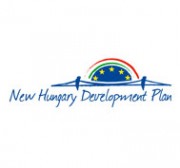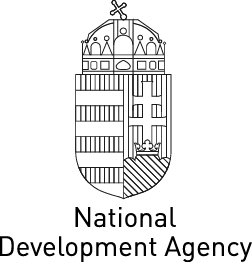Competency, Equal Opportunity, Innovation24 September 2008
 Education development calls for applications are being launched in the spirit of the keywords featured in the title. A high standard educational system accessible for everyone, open to new approaches, responding to the challenges of the future and training needs required for life-long learning, as well as well-trained professionals adhering to this establishes the grounds for a thriving society and a New Hungary.
Education development calls for applications are being launched in the spirit of the keywords featured in the title. A high standard educational system accessible for everyone, open to new approaches, responding to the challenges of the future and training needs required for life-long learning, as well as well-trained professionals adhering to this establishes the grounds for a thriving society and a New Hungary.
European Union funding made available for Hungary offers an unprecedented opportunity for developing and modernising the educational system. Two calls for applications announced within the framework of the New Hungary Development Plan on 22 September ensure the opportunity to launch developments of 17.5 billion HUF in value aimed at strengthening competency-based education, equal opportunity, training and education adjusted to individual needs, as well as the innovation capacities of institutions.
Bodies financing the institutions may submit applications in response to the calls, in which case own funds are not required, from 3 November 2008 through to 15 January 2009.
Educating the next generation, passing on experiences accumulated and preparing young people to deal with future difficulties and challenges is the basis of success of every community. This is why the educational system plays a pivotal role in creating a strong economy, democratic society based on self-awareness and equality, as well as sustainable development. Only high standard modern education adjusted to present-day and future needs and demands to which each individual member of Hungarian society is ensured equal access and which does not exclude anyone, but instead helps raise the individual is capable of establishing the pillars of a thriving and prosperous New Hungary.
Transformation of the public education system began in Hungary in the 1990s in this particular spirit, which targeted the reform of the management and financing structure in order to be able to improve the efficiency of the system. The results of the competency-based PISA tests conducted between 2000 and 2006 underline the importance of development, which results point out that some 20% of the 15 year old age-group have difficulties in reading and mathematics, as does feedback received from employers who complain about the lack of or poor knowledge and skills of young career starters. The long-term strategy of public education designates the precise courses of action and system of instruments underpinning development by taking the above into account. Funding received from the European Union, i.e. the citizens of Europe during the 2007-2011-period creates an unprecedented opportunity for implementing developments.
NDA has announced 2 calls for applications earmarked a total of 17.5 billion HUF and specifically targeting the financing bodies of institutions within the framework of the Social Renewal Operational Programme. The objective of the calls, in which case own funds are not needed, is to
• develop skills and abilities establishing the grounds of life-long learning required for successful employment;
• wide-spread dissemination and promotion of the methodology and instruments used in competency-based education;
• disseminate digital writing skills and help promote making these everyday practice;
• update and upgrade the methodological culture of teachers;
• establish an integrated educational environment free of segregation;
• develop students according to their individual needs by reducing selective impacts and ensuring equal access and equal opportunity;
• link infrastructure developments and necessary professional curriculum and methodological developments.
In order to reach the above-outlined goals, applicants must, among others, assume commitments for introducing educational programmes and tools that support the application of new procedures in the organisation of learning, applying modern teaching methodology, using digital contents and educational tools and resources in the context of education, as well as creating monitoring procedures based on a student-centric and individual learning path approach supporting the prevention of school dropout and exclusion. Beyond competency development, equal opportunity and integration, the calls also particularly emphasise institutional innovation and the introduction of new, innovative approaches. Institutions are consequently encouraged to design programmes adapted to accommodate local characteristics, develop educational procedures and set up learning organisational contexts adjusted to local needs and implement these in practice, in addition to promoting experience exchange and cooperation among institutions and teachers.
The call SROP-3.1.4./08/1.-KMR has been allocated nearly 1.5 billion HUF, whilst the call SROP-3.1.4./08/2 has been allocated 16 billion HUF from the available framework. The financing bodies of institutions are eligible to apply for 5-25 million HUF per campus or location - depending on the call – from 3 November 2008 though to 15 January 2009, which ensures the opportunity for implementing developments in approximately 1100 institutions that are expected to be completed by 31 August 2010.

